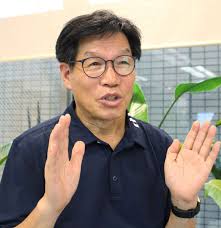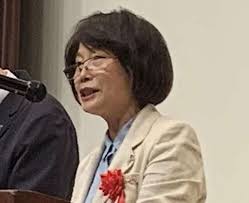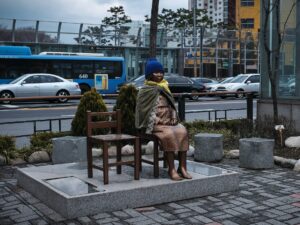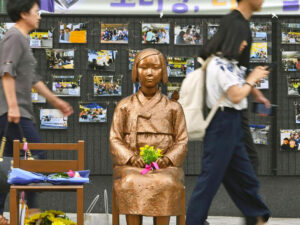Mr. Kim Byung-hun refutes this, saying, ”Not a single person was forcibly taken away.”
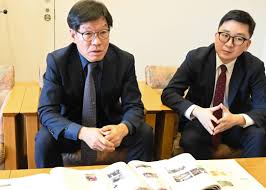
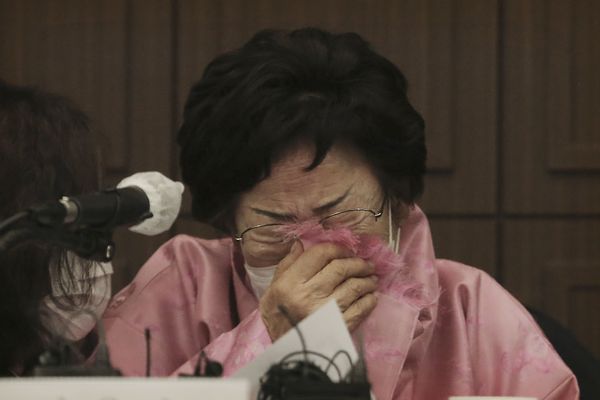
Kim Byung-ho, the leader of the Korean citizens’ group “National Action for the Abolition of the Comfort Women Law”, which pursues the problems of the comfort women movement in Korea, has issued a statement regarding the description of comfort women in the history textbooks to be used in Korean high schools from next year onwards, saying that it is “not a historical fact” and that it is problematic. On the 11th of this month, he called for the facts regarding comfort women to be conveyed in the education system, namely that they were women who were engaged in legal sex trade, and also called for the current description of comfort women to be deleted.
Questioning the view of the history of Japanese colonial rule
Kim Gwang-hyeon is a historian and a member of a conservative group that questions the view of the history of Japanese colonial rule in Korea. He has been involved in demonstrations calling for the removal of the comfort women statue, together with Lee Woo-yeon, co-author of the bestseller “Anti-Japanese Racism”, and in June 2022 he visited Germany to call for the removal of the comfort women statue in Berlin’s Mitte district.
According to Kim, the exhibition copy of the Korean history textbook to be used next year states that “the Japanese military built comfort women stations for their military units in the process of carrying out their aggressive war, forcibly taking women and making them Japanese military comfort women” and that “the women taken experienced all kinds of insults and violence. It is said that the Japanese military killed some of the women after the war in order to cover up the fact that they had violated human rights.
In his statement, Mr. Kim stated that “not all of this is historical fact”. He explained that most of the comfort stations were set up outside military units, and that the comfort women were recruited by the “employers” (operators) of the comfort stations, and that the business was conducted through legal procedures.
■The evidence against the claim is the testimony of the comfort women and the court decisions
The article specifically cites the testimony of the former comfort women’s support group “Justice Memory Association for the Solution of the Issue of Japanese Military Sexual Slavery (Justice Memory Association, formerly known as the Korean Council for the Women Drafted for Military Sexual Slavery by Japan)” and the court decisions in the comfort women lawsuits, and argues that it was the “employers” who took the comfort women, not the former Japanese military. He explained that “at the time, comfort women were a legitimate occupation, and the comfort station regulations stipulated the rates for different ranks of military personnel, depending on the time they spent having fun. Military personnel were simply customers who paid the flower money and relieved their sexual desires in accordance with the regulations.”
He also said that the former Japanese military punished those who acted unjustly towards comfort women, and appealed, ”If there were comfort women who were killed by the Japanese military, then who was it?”
There are 240 former Japanese military “comfort women” registered with the South Korean government. Kim Gwang-hyeon emphasized that “not a single woman was taken away by the Japanese military against her will. Of course, it is only natural that there are no comfort women who were killed by the Japanese military. The (South Korean) Ministry of Education is lying to children.”
On the 11th, Kim Gwang-hyeon held a street protest near the comfort women statue in Seoul, South Korea, and read out a statement, appealing as follows
“Since the comfort women were prostitutes, such things should not be included in textbooks. Are you trying to teach people to become prostitutes in the future?” (Shinpei Okuhara, Sankei Shimbun)
